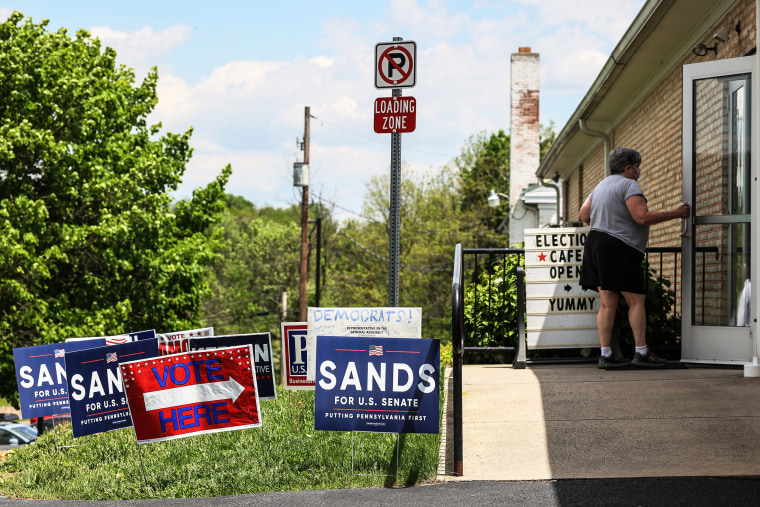The Pennsylvania Supreme Court on Wednesday ruled that Republicans' subpoena of voter information after the 2020 election was unenforceable, overturning a previous court ruling.
The commonwealth's highest court ruled in Wednesday’s brief order that the subpoena was unenforceable because the 2021-22 legislative session had already ended.
The move is the latest legal defeat for Republicans who took to courts nationwide over the 2020 election, when former President Donald Trump promoted falsehoods about the election.
Pennsylvania state Senate Republicans in 2021 voted to subpoena voter information, but the move was challenged by those who argued that the committee’s “true purpose is to challenge the outcome of the 2020 presidential election,” according to a lower court’s 2023 opinion.
That court, the Commonwealth Court of Pennsylvania, declined a year ago to "restrain enforcement of the Senate Committee’s subpoena."
A Republican-majority committee voted in September 2021 to subpoena voter information from Pennsylvania's Department of State. When the vote was challenged in court, the committee argued that the state's constitution allows "the legislature to conduct an investigation that may aid legislators in determining whether, or in what manner, they should consider amendments to the Election Code," according to a summary of their position as described by the Commonwealth Court included in the February 2023 majority opinion.
Republican Pennsylvania state Sen. Cris Dush, who at the time chaired the Senate committee that voted on the 2021 subpoena, argued prior to the vote that Pennsylvanians "are experiencing a crisis of confidence in our elections." He said in 2021 that the purpose of an "election integrity investigation" would be to "uncover information which is necessary for the legislature to potentially take future legislative action."
State Senate Democratic Leader Jay Costa said in statement that he was "extremely proud" of the state Supreme Court's ruling, "which will protect the sensitive data of Pennsylvania’s voters, and ensure that the privacy of Pennsylvania’s 9 million voters will be preserved."
Costa added that the Senate Democratic caucus' decision to go to court over the GOP lawmakers' efforts "ultimately blocked an inappropriate and misguided subpoena" issued by Dush, who Costa claimed was seeking confidential voter information with the aim of "conducting a trumped-up election audit."
"The Supreme Court has ruled that the subpoena is no longer effective and, in the process, has vacated a lower court ruling that would have made it more difficult for voters to assert their constitutional rights to privacy," he said.
The Pennsylvania state Republicans’ vote to subpoena followed a trend of Republicans heading to court after Trump’s 2020 election loss. NBC News previously reported that Trump and his allies have filed dozens of cases in an attempt to contest President Joe Biden’s victory. Election officials have assured that votes were secure and that there is no evidence of widespread voting irregularities.

